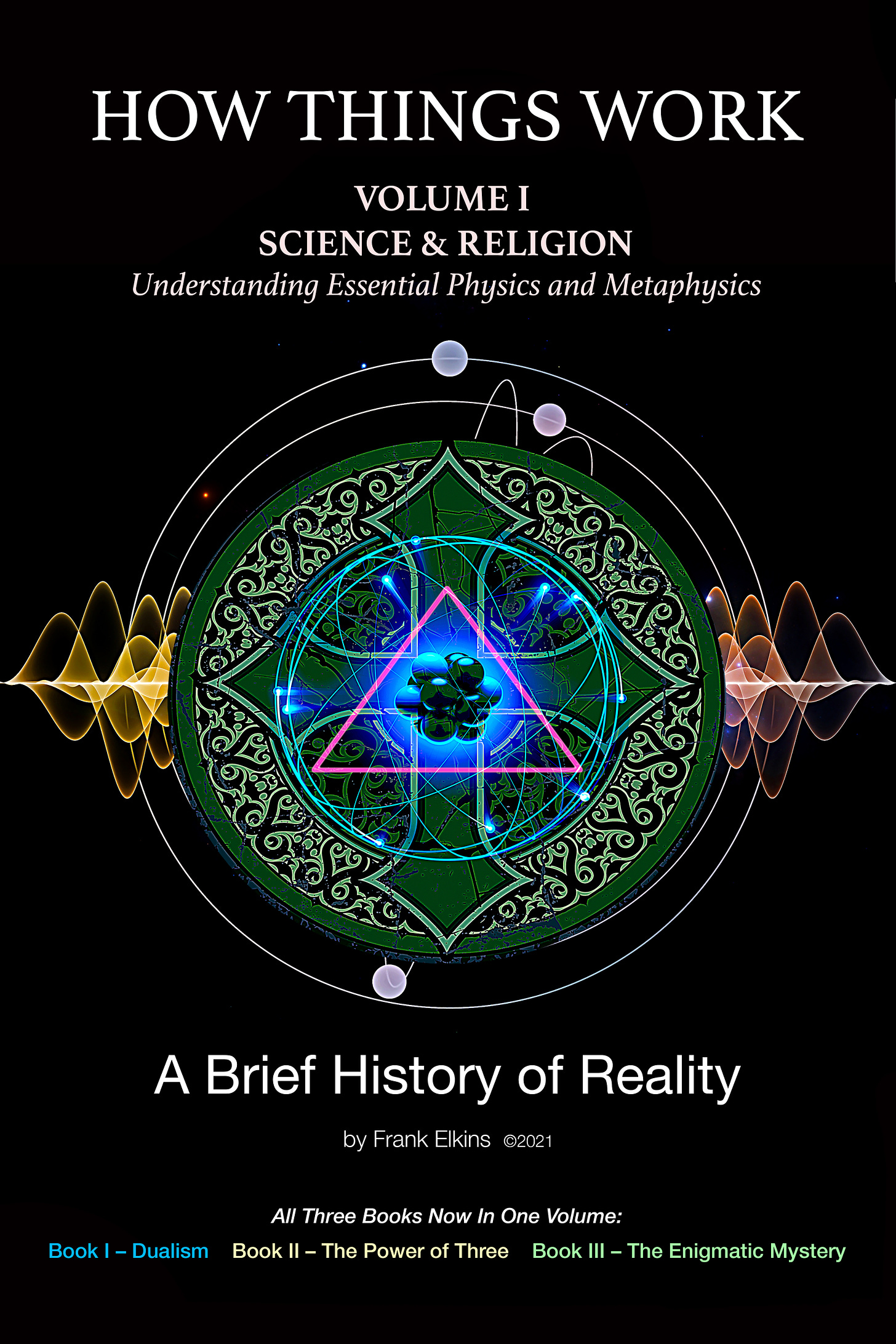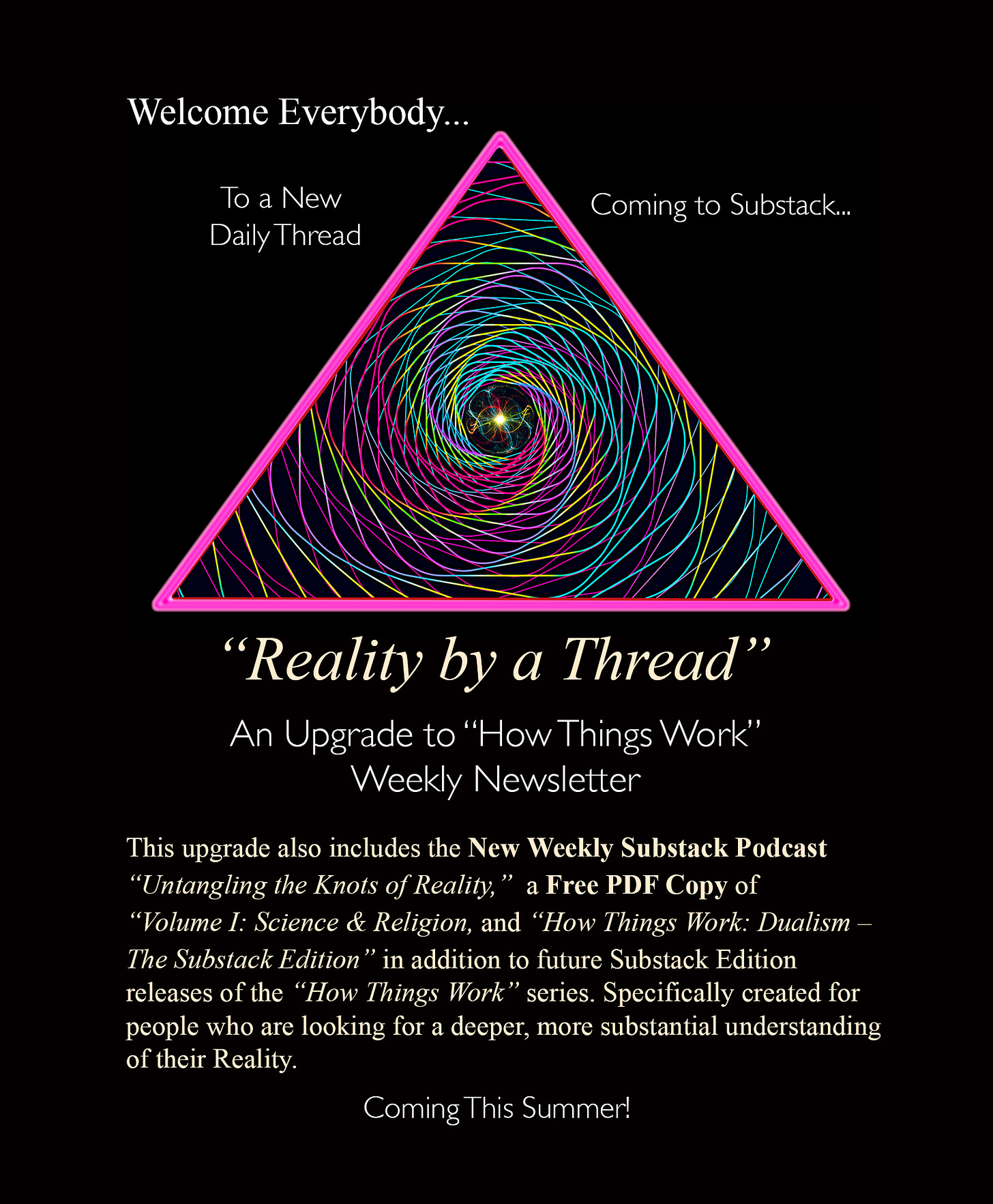How Things Work – A Brief History of Reality
Book I – Dualism (Thomas Paine & Enlightened Revolution)
Actually be the smartest person in the room!
Tuesday, April 12, 2022
“But such is the irresistible nature of truth, that all it asks, and all it wants is the liberty of appearing.” – Thomas Paine
CONSIDERATION #26 – “Thomas Paine” Enlightened Revolution
PREFACE
Welcome Everybody!
Above all, Thomas Paine was the first modern revolutionary. Paine’s writings were designed to do more than provoke thought; they were designed to provoke action. Thomas Paine was a “true believer” who sought to actively bring about a new “Age of Reason” by doing more than thinking, talking, and surmising about it. He spent his entire adult life promoting the need for immediate rebellion and insurrection.
“Thomas Paine was a pamphleteer, controversialist and international revolutionary. His Common Sense (1776) was a central text behind the call for American independence from Britain; his Rights of Man (1791–2) was the most widely read pamphlet in the movement for reform in Britain in the 1790s and for the opening decades of the nineteenth century; he was active in the French Revolution and was a member of the French National Convention between 1792 and 1795… his Age of Reason provided a popular deist text that remained influential throughout the 19th century.”
Stanford Encyclopedia of Philosophy – Thomas Paine
Born in England, Thomas Paine came to America after a direct invitation from Benjamin Franklin. Paine arrived in Pennsylvania barely alive after contracting typhoid on the voyage from England. He spent his first six weeks in the “New World” recuperating from the devastating disease. After recovering he became a citizen of Pennsylvania and the editor of the Pennsylvania Magazine, where he advocated for American Liberty. Paine was a rabid abolitionist writing essays such as African Slavery in America in which he called slavery an “outrage against Humanity and Justice.” Paine’s writings did more than just help initiate the American Revolution; they were also extremely instrumental in maintaining it once it began. “Common Sense” and “The American Crisis” proved not only critical to the American Revolution, but also to the Declaration of Independence that initiated it. Thomas Paine is very much at the center of the American Revolution and its success.
Common Sense
“Society in every state is a blessing, but government even in its best state is but a necessary evil; in its worst state an intolerable one…”
Thomas Paine – Common Sense
In Common Sense, Paine embraces the idea of society and the social nature of human beings while questioning the effectiveness of government, equating it with a necessary evil. He sees the “New World” of America as the most fertile opportunity for planting the seeds of the Enlightenment and actually manifesting a new kind of government designed to meet the social necessities of its citizens, not hamper them. Unlike other contemporary philosophers such as Hobbes, Locke, and Kant, Paine did not write for the elite of society, but for the “common man” instead. Paine recognized that the common man was the one who would do the actual fighting to bring this new world into existence, not the elite. Therefore, his writings were focused on stirring more than just their reason, but also their emotions as well. Thomas Paine was preparing for battle. Common Sense was the battle cry.
Like most wars, the inspiration of a new possibility quickly became replaced by the harsh reality of military conflict. This is the time when causes are won and lost. In the midst of overwhelming defeat by the British, with little or no hope of being victorious, Thomas Paine recognizes their suffering and calls upon their humanity to finish the cause which they had begun. On December 23, 1776, General George Washington reads from the American Crises just prior to crossing the Delaware river and attacking the Hessians in Trenton, New Jersey. The volunteer soldiers were freezing in the bitter cold, devastated by endless defeat, and nearing the end of their enlistment in the cause. This was their last hope, and their last chance of continuing the revolution against Britain.
“These are the times that try men's souls: The summer soldier and the sunshine patriot will, in this crisis, shrink from the service of their country; but he that stands it now, deserves the love and thanks of man and woman. Tyranny, like Hell, is not easily conquered; yet we have this consolation with us, that the harder the conflict, the more glorious the triumph. What we obtain too cheap, we esteem too lightly: it is dearness only that gives every thing its value. Heaven knows how to put a proper price upon its goods; and it would be strange indeed if so celestial an article as freedom should not be highly rated.”
Thomas Paine – The American Crises
The crossing of the Delaware and the victory of the Americans over the Hessians became the turning point for the Americans and the revolution. It allowed them to access the supplies and inspiration they needed to continue the war and eventually defeat the greatest power on earth; and a chance to establish the new government Thomas Paine and others had so long hoped for.
“The cause of America is in great measure the cause of all mankind. ”
Thomas Paine – Common Sense
CONSIDERATION #26: Enlightened Revolution
Thomas Paine
“We have it in our power to begin the world over again.”
― Thomas Paine, Common Sense
The seeds of the European Enlightenment found fertile soil in “The New World” from the writings of Thomas Paine. As much a man of action as of thought, Paine’s solution for eliminating tyrants and introducing liberty could be summed up in one word: Revolution. Works such as Common Sense, The Rights of Man, The American Crisis, and The Age of Reason were all written for one specific purpose: to persuade the British colonists to revolt against England in order to gain their own independence. Paine’s writing influenced and enticed several prominent colonists, such as Benjamin Franklin, John Adams, and Thomas Jefferson, to reflect on his invitation to the possibility of establishing an entirely new and unique form of Enlightened government on the clean slate of America.
POSTSCRIPT
“From the errors of other nations, let us learn wisdom...”
Thomas Paine – Common Sense
Thomas Paine helped to inspire, incite, and sustain the American Revolution. In the end, his common sense called for political independence from Great Britain in order to establish the new Enlightened government so many had talked and written about for centuries. Few anticipated that setting up a new form of government would prove more difficult than defeating the greatest power on earth. However, the dilemma related to implementing the philosophical and political abstractions of the Enlightenment into the real world of human beings was about to begin.
Next week a SPECIAL EDITION NEWSLETTER (Part 1) considering the Foundational Flaw of Slavery in the American experiment and how that legacy sidetracked the promise of America.
Learn More About the Idea of America: “Being American: A Primer for All Parties and Persuasions!” Available Exclusively from BooksNotOnAmazon.com
All Three “How Things Work” Books Including “Book-3 The Enigmatic Mystery” are Now Available in One Volume: “How Things Work – Volume I Science & Religion” for Only $9.95! Exclusively through BooksNotOnAmazon.com
Coming this summer…







